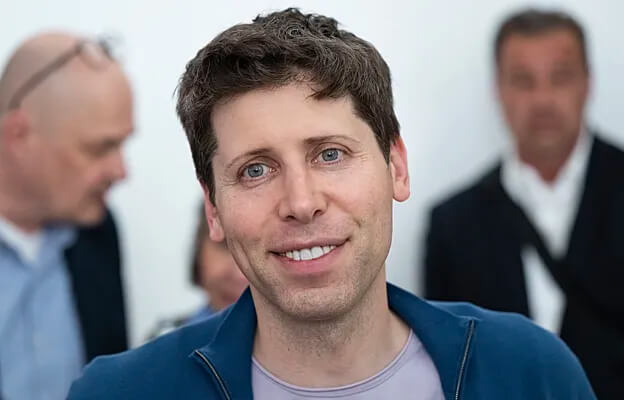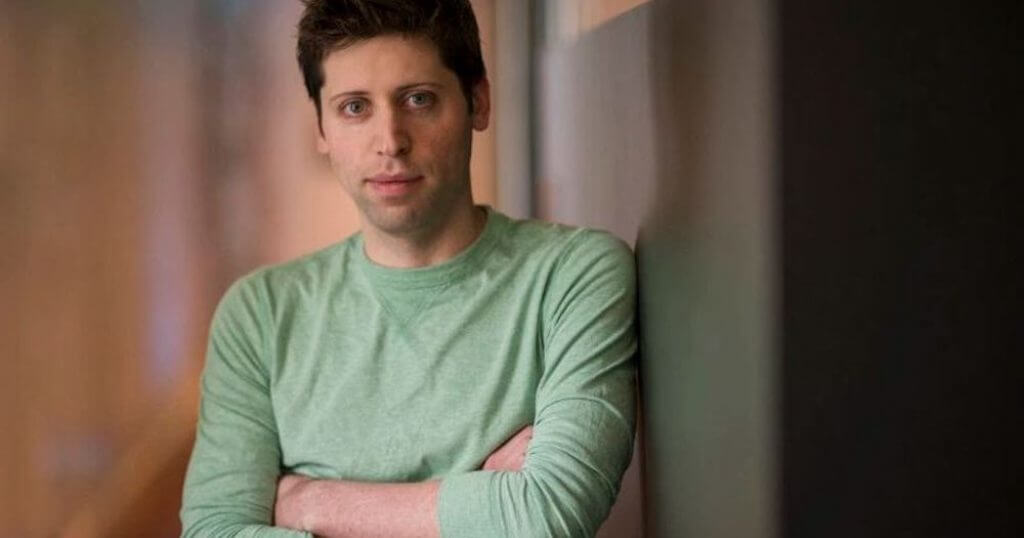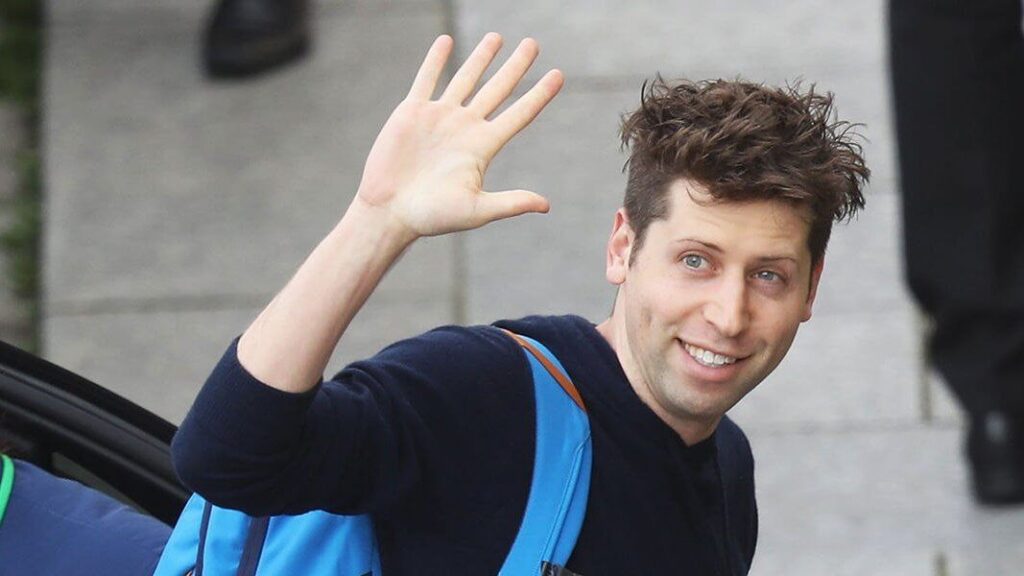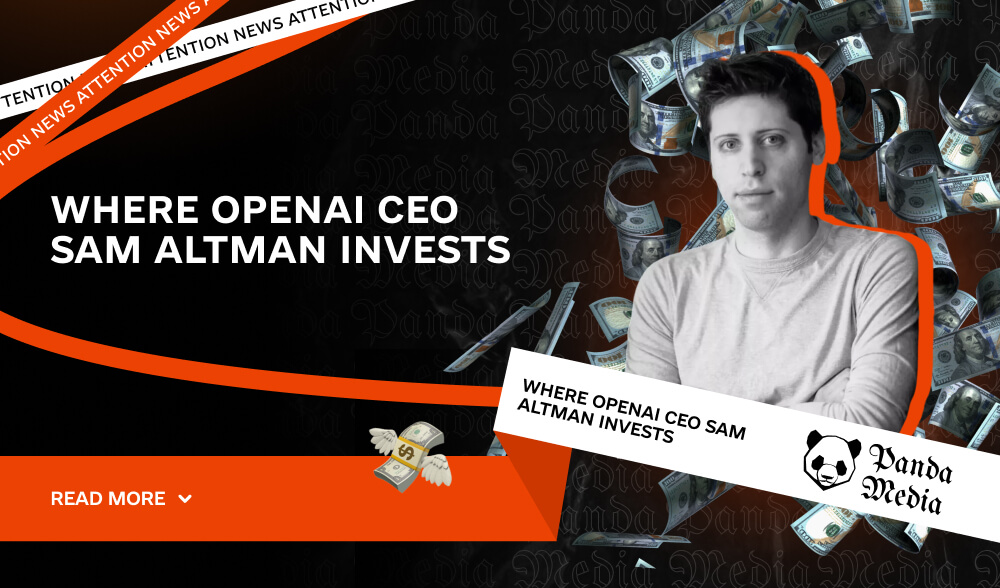Since 2019, Open AI CEO has made more than 60 investments as an angel and founder of several venture capital and investment funds.

Prior to founding OpenAI, Sam Altman served as the president of Y Combinator, one of the most famous startup incubators in the world. During his tenure, he led many rounds of funding and continued to invest in technology projects even after leaving the company. Let’s take a look at a few companies that caught his attention.
The viral success of OpenAI’s ChatGPT further increased interest in Altman, who, together with Elon Musk, founded the company in 2015. From 2014 to 2019, he held a key position at Y Combinator, where he not only supervised early-stage projects but also actively invested in startups.
According to Crunchbase, Altman has funded nearly 100 companies over the years. Most of them remain private, which makes it difficult to accurately calculate his net worth, but some estimates exceed $500 million. It is important to note that Altman himself does not own shares in OpenAI, which recently reached a valuation of $29 billion.
Helion Energy: nuclear fusion energy
This project holds a special place in Sam Altman’s portfolio. In his interviews, he has repeatedly emphasized that it is “more than just an investment” for him. In November 2021, Altman invested $375 million in Helion as part of a Series E round, bringing the startup’s valuation to $2.5 billion. It is known that he regularly visits the company once a month and is actively involved in operations.

Neuralink: neural interface
Sam Altman backed Elon Musk’s startup in July 2021, when the company raised $205 million in a Series C round. Neuralink is developing a wireless implant that will allow connecting the human brain to a computer.
Reddit: social networks
Y Combinator under Altman was the lead investor in Reddit’s $50 million Series B round in 2014. In July 2017, Y Combinator backed the company again, participating in a $200 million Series C round. Altman was also a member of Reddit’s board from 2014 to January 2022.
Wave Mobile Money: financial technology
Wave Mobile Money is an African developer of money transfer and lending applications. Altman participated in the company’s Series A round in September 2021, which raised $200 million.
Retro Biosciences: biotechnology
The San Francisco-based startup develops cell reprogramming, autophagy, and plasma-based therapies. Sam Altman became the lead investor in the company’s $180 million venture round in April 2022.
TrialSpark: biotechnology
The New York-based biotech platform aims to accelerate clinical trials through automation and data utilization. Altman invested in the company in a Series B round in October 2018 and a Series C round in September 2021.
Hermeus: supersonic aviation
This startup develops the world’s fastest supersonic jets. Altman was the lead investor in the Series B round, which took place in March 2022 and brought the company $100 million.
Humane: software and hardware
Sam Altman has invested in this startup three times. He led a Series A round worth $30 million in September 2020, and also participated in a Series B round in July 2021 and a Series C round in March this year, each of which brought the company $100 million.

Alt: trading sports cards
Alt is an alternative asset platform that allows consumers to trade and store sports cards. In November 2021, Altman participated in a $75 million Series B round.
Asana: productivity management
Altman was a lead investor in Asana’s $50 million Series C round in March 2016. Then, in January 2018, he participated in a $75 million Series D round.
Aspen Neuroscience: biotechnology
Aspen Neurosciences is a San Diego-based biotechnology startup specializing in personalized cell therapy. In April 2020, Sam Altman participated in a $70 million Series A round.
Rescale: cloud software
This cloud-based platform is designed for engineers and computer scientists in the aerospace and energy industries to create customized applications. Altman has invested in Rescale four times since the seed round in 2012. The last time was in November 2021, when the company held a $55 million Series C round.
Conclusion
Altman’s portfolio contains many potential conflicts of interest. Many of the companies he has invested in are in the field of artificial intelligence, some of which directly use OpenAI’s technologies, while others are suppliers or investors in the company.
However, such a portfolio also provides the entrepreneur with a broad and deep understanding of the market. By communicating with the founders of his portfolio companies and reading their investor reports, he stays abreast of key trends and innovations. Altman can use this information both for his own business purposes and to strengthen OpenAI’s position.


